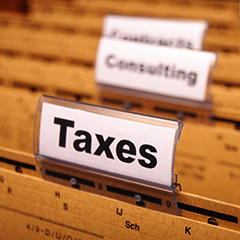S Corps and Partnerships: Beware of Failure-to-File Penalties
March 22, 2015 | Accounting Standards, Business Plans
 The S corporation is a popular business structure that’s available only to privately held businesses. According to the U.S. Small Business Administration’s Office of Advocacy, about 44 percent of small companies have chosen to operate as S corporations.
The S corporation is a popular business structure that’s available only to privately held businesses. According to the U.S. Small Business Administration’s Office of Advocacy, about 44 percent of small companies have chosen to operate as S corporations.
Maine-based small business owners may elect S status to retain the limited liability of a corporation, and also to pass corporate income, losses, deductions and credit through to shareholders for federal tax purposes.This means that S corporations generally avoid double taxation of corporate income. Shareholders report these tax items on their personal tax returns and pay tax at their individual income tax rates.
It’s important to remember, though, that there is a tough penalty of S Corporations that don’t file a timely federal return each year. Here’s what you need to know.
S Corp Failure-to-File Penalty
The penalty for failure to file a federal S corporation tax return, or failure to provide complete information on the return, is $195 per shareholder per month. The penalty can be assessed for a maximum of 12 months.
For example, the monthly penalty for failing to file a calendar-year 2014 Form 1120S for an S corporation with three shareholders is $585 ($195 times 3). Say the return remains unfiled for 12 months. The maximum penalty would equal the monthly penalty multiplied by 12. So the maximum failure-to-file penalty for a three-owner S corporation would be $7,020 ($585 times 12).
Important Note: Even though many federal tax penalties are assessed based on the amount of tax owed, meaning penalties cannot be assessed if the taxpayer doesn’t have positive taxable income and a resulting tax bill, filing S corporation returns can’t simply be ignored because no tax is owed. The failure to file penalty for S Corporations is assessed whether it had positive taxable income or not.
Same Thing Can Happen with Late-Filed Partnership Returns
Subject to limited exceptions, unincorporated businesses and investment ventures with two or more participants are treated as partnerships for federal income tax purposes. This is true even if the venture isn’t formally organized as a partnership under state law. The potential penalty for failure to file a partnership return is also $195 per partner per month, and like S Corporations, the penalty can be assessed for a maximum of 12 months.
The risk may be even higher in this scenario because often business venture participants may not realize that they have created a partnership for tax purposes and that federal returns are due.
Bottom Line
S corporations and other business ventures with two or more participants that are treated as partnerships for tax purposes must file timely annual federal returns or potentially face steep failure-to-file penalties. These penalties can be assessed even though the S corporation or partnership in question doesn’t produce positive taxable income. Whenever you become involved in a business or investment activity, consult with Filler & Associates regarding necessary tax filings and for professional tax preparation assistance.
